|
Dr Rosena Allin-Khan: As a doctor and as a daughter I know social care is broken.
The deputy leadership candidate has spoken about the horror of finding her dad - who has dementia- injured and not knowing what happened. She wants to make sure no other family has to suffer that way. Nothing prepares you for finding your loved one bruised and blooded. Nothing prepares you for never finding answers. This is the reality that every day, so many people are living through, across the UK, because of the nature of the social care system. Nothing prepared me for being one of the statistics. My father has fronto-temporal dementia – he cannot communicate his thoughts but he is fully aware of what is happening. My brother and I found him bloodied and bruised on more than one occasion, we have sought answers but we know that we will never find them. He is safe now, but his health has deteriorated massively and has affected his life expectancy. This is not just my reality. This is the reality for so many others across the country. I am lucky. I was able to call a debate last year and get The Mirror to cover my family’s journey. Most people don’t have that luxury. Instead, they’re left fighting the social care system. I’ve been on both sides. As an aggrieved family member and a local politician with a responsibility for social care, I’ve seen the strife that goes into placements on both sides. The system is failing our most vulnerable residents. As it stands, the social care system is not fit for purpose. The Tories promised in their manifesto that they would tackle social care. It’s been three years – and yet still no Green Paper, despite countless promises. Last week, in Parliament, I asked the Health Secretary how many more families will suffer before the Government looks to reform the social care system. There was no answer. As an A&E doctor, who regularly sees vulnerable older people stranded in hospital because they don’t have access to adequate social care, and as a daughter, who’s had to go through this process, I have the following recommendations: - A truly independent complaints process – formal complaints should not have to go through the care provider or local authority who the complaint is against. - A reformed process for awarding care contracts – to ensure that failing companies cannot simply change their name and continue providing inadequate care. - An Independent Advocate for Older People – to protect and promote the rights of older people. - Mandatory CCTV with an opt-out – CCTV in communal areas within care homes should be mandatory to provide evidence of any unacceptable behaviour in a care setting. - A fully funded social care system, integrated into our NHS, with a ban on outsourcing to private companies. Increased funding alone won’t solve the problems being faced by our most vulnerable – only enacting the above changes will. At some point in our lives, we all have an experience with the social care system – as a daughter, I know how difficult it is when this system fails you. As Labour Deputy Leader, I would continue putting pressure on this Tory Government and their poor record on social care. As a society, we must protect our most vulnerable – sadly, nothing prepares you for confronting the worst. As your Deputy Leader, I would work with the Leader of the Labour Party to put the NHS and social care front and centre of our policy going forward. We need to protect our most vulnerable. We need a Labour Government. Labour Campaign for International Development endorses Doctor Rosena Allin-Khan for Deputy Leader30/1/2020
I am hugely proud and honoured to be nominated for Deputy Leader by the Labour Campaign for International Development.
As someone who has worked as an humanitarian doctor in conflict zones across the world, their progressive approach to international development and promotion of global justice is an inspiration. My priority will always be to put human rights and international solidarity at the core of everything I do. Human life should have equal value, no matter where someone comes from. These principles shouldn't just apply to our international development policies, they should be applied to everything we do as the Labour Party. I want to thank the Labour Campaign for International Development for their support and their endorsement. Let's take Labour forward, together. Thank you Doctor Rosena Brexit Might Be Done But The Fight Against Boris Johnson's Destruction Must ContinueAlthough the Labour party is in a difficult place right now, we must make sure it is at the forefront of the fightback.
When the UK leaves the EU this Friday, 31 January 2020, after 47 years of membership, it will be a sombre day for many of us. For others, it will be a day of celebration. For most people, I suspect they will simply hope we can now move on from talking about Brexit at the expense of everything else. As someone who campaigned with all my heart to stay in the EU, and as the first person on Labour’s front bench to publicly call for a People’s Vote on the final Brexit deal, I am desperately sad to see us leaving our friends and allies in Europe. But we are leaving. The disastrous result of the General Election has settled that. This is no longer an argument about Leave or Remain, it’s about what kind of future we want for our country and for our children. That’s where the new fight begins. Boris Johnson wants to pretend he’s now “Got Brexit Done”, and we no longer need to worry about the details. He wants us to simply trust him to sort it all out. Well, I don’t trust him. Neither should you. He talks about “Global Britain” whilst turning his back on vulnerable child refugees. He talks about “Taking Back Control” while reducing parliament’s ability to scrutinise his decisions. He talks about attracting “Global Talent” to the UK while creating huge distress and uncertainty for EU citizens, many of whom have been here for years and who have made their lives in this country. The fight for our internationalist values starts now. It will be long, and it will be difficult, because Boris Johnson has a large majority – but that’s why it’s so important. When it feels like hope is lost, that’s when those of us who believe in progressive values and internationalism need to stand up and fight. If we don’t, no-one else is going to do it for us. We need to stand up and fight for our hard-won workers’ rights. We need to stand up and fight for our environmental protections. Most importantly, we need to stand up and fight for the rights of EU citizens living in this country. They are our friends, our neighbours, our colleagues, our family. I work side-by-side with many of them in the NHS, when I work shifts as a doctor in my local A&E department. Under the draconian new immigration laws being bandied around by this government, my own Polish mother might not have been able to move to this country and make a life for herself. Although the Labour party is in a difficult place right now, we must make sure it is at the forefront of the fightback. That’s one of the main reasons I am running to become the next Deputy Leader. We have huge organisational strength through our membership, through our links with the trade unions and through our MPs and councillors embedded in their local communities. Now is the time to deploy those strengths to maximum effect, to hold the Government to account and ensure that we fight back against every attempt to undercut our rights and freedoms at work, every attempt to weaken our environmental safeguards, every attempt to inject privatisation into our National Health Service. The slogan “Get Brexit Done” might have helped win the election for Boris Johnson, but for those of us who stand against his destructive vision for the future of our country, this fight isn’t done. It’s just getting started. My responses to the questions provided by the Labour Campaign for Free Movement 1. Defend and extend free movement: opposing any reduction in the freedoms of UK and EU citizens to live, work, and access social security in each others’ countries, and any immigration system based on incomes, migrants’ utility to business, and number caps or targets.I am the very embodiment of the benefits free movement has brought – my mother is Polish and was able to come to this country and make a life for herself here. Under the draconian new immigration policies being discussed by this Tory government, she might never have been able to do that. Protecting and extending free movement is at the very heart of my internationalist Labour principles. I believe our country is stronger and better because of free movement. When I work shifts as an A&E doctor in my local hospital, I work with NHS staff from across Europe and it breaks my heart to see many of them feeling unwanted or undervalued because of Brexit. As Deputy Leader, I pledge to do everything in my power to promote the core Labour values of internationalism and solidarity across borders, because I believe human life has the same value no matter where someone comes from. That means defending and extending free movement, and it means fighting to protect the human rights of migrants from this hostile Tory government. 2. Close every detention centreHolding migrants in detention centres, often in substandard conditions, is incredibly cruel and degrading. These are often vulnerable people, fleeing from a variety of horrific circumstances such as war, trafficking and poverty. They have the right to be treated with dignity, as human beings, as we would want ourselves or our family to be treated in such horrendous circumstances. When working abroad as a humanitarian doctor, I’ve seen first-hand some of the terrible conditions people are forced to endure in detention centres and it horrified me. We must fight back against the hostile environment the Tories have created for migrants – the Labour Party has always stood for international solidarity and openness to the world – we need a Labour government to bring those principles back into the core of our approach to immigration. I would want to listen to expert opinion on how to do this in a responsible way, but I certainly would want to close as many detention centres as possible and make sure we have an overall approach to immigration that means a concept as cruel as detention centres are not required in the first place. 3. Unconditional rights to family reunionYes, I fully support this. The unconditional right to family reunion is a fundamental element of treating migrants as human beings with dignity and equal value, rather than the Tory approach of seeing migrants as a problem to be managed. When I’ve worked as a humanitarian doctor in conflict zones across the world, it was always horrendous to see so many families ripped apart or prevented from seeing each other again. When I visited Palestine on a humanitarian mission, I saw sick children alone in hospital because the permit system meant their parents weren’t allowed to visit them. I immediately began working on ways to resolve this. It’s not enough to just talk about this – we need to be working every day to deliver a Labour government so we can fix these kinds of injustices. That’s what I’d do as Deputy Leader. 4. End “no recourse to public funds” policiesI support ending such policies, yes. This is another case of a Tory government treating migrants not as human beings with human dignity and equal value, but instead as a problem to be managed through cruelty. I want to deliver a Labour government with internationalism at its core, which would allow us to change our entire approach to migration, and begin seeing human life as equally valuable and equally dignified no matter where that person was born or where they’ve come from. 5. Oppose all Hostile Environment measures, use of landlords and public service providers as border guards, and restrictions on migrants’ NHS accessThe Tory Hostile Environment approach to immigration is a stain on the soul of their party, and they should be ashamed of it. Tragedies such as the Windrush scandal are a horrendous demonstration of where this approach leads, and I worry a similar scandal could occur with EU citizens who’ve made their lives in this country. I want a Labour government so we can end the Hostile Environment immediately and start treating migrants with the human dignity and respect they deserve. 6. Equal voting rights for all UK residents I am certainly interested in all ideas for how to revitalise our democracy and increase the level of engagement with our political process. Indeed, prior to the General Election in 2019, I publicly called for EU citizens to get the right to vote. Our Labour values of openness and internationalism must be at the core of everything we do. 7. Please share your thoughts on these wider issues that our supporters also feel strongly about:Even after Brexit, the UK government looks set to participate in Frontex (the European border agency) and its “Fortress Europe” policies. Will you challenge these policies? I certainly think the EU has often failed dismally to strike the right balance between border security and solidarity with people fleeing from war, poverty and the effects of global climate change. I am a proud pro-European, but that doesn’t mean my view of the EU is uncritical and I’ve never been afraid to say so. My values of international solidarity and openness don’t stop at the borders of Europe – they extend across the whole world. Human life always has equal value, no matter where that person comes from. Will you support an amnesty for undocumented migrants resident in the UK? We should always treat people with compassion and dignity, and we must place those values at the heart of everything we do when it comes to immigration. People in this country without documentation are often asylum seekers fleeing from horrific conditions and I want to see them treated with the human dignity they deserve. I would want to listen in more detail to expert opinion and feedback on the specific question of whether an amnesty is the right approach, but the principles of human dignity and compassion must always guide everything we do. Anything else you’d like Labour members, supporters and affiliates to know about what your leadership/deputy leadership would mean for migrants and migration policy? I am the living, breathing proof that free movement is a wonderful benefit to our country. My Polish mother was able to come to this country and make a life for herself here. Working on the frontlines of the NHS as an A&E doctor, I work alongside colleagues from across Europe and the rest of the world, and they are a credit to our country. It makes me proud to be British. But years of Tory government has created a literal Hostile Environment for migrants in this country. The drawbridge is being pulled up, and the rights of a whole generation of people to travel freely and live, love and work across Europe is being taken away. That is a tragedy, but it also means those of us who are proud of our outward-looking, progressive, internationalist values must fight even harder to protect and extend them. The fight starts now, and as your Deputy Leader (or even if I’m not!), I promise I will always be there fighting alongside you for those values with everything I’ve got. Nothing prepares you for seeing a colleague in tears over antisemitism.
Labour deputy leadership hopeful, Rosena Allin-Khan, speaks about her heritage informing her fight against Jew-hate, and her commitment to mending ties with the community. “There is nothing that prepares you for seeing a colleague in tears,” says Dr Rosena Allin-Khan, one of five hopefuls standing for Labour’s deputy-leadership. Committed to winning back the trust of the community – and standing up for MPs such as Luciana Berger and Ruth Smeeth who are no longer in Westminster – Allin-Khan, currently the MP for Tooting, seems sincere in her battle against hate. She grew up as the daughter of immigrants – her father hailing from Pakistan, her mother from Poland, herself the descendent of resistance fighters killed by the Nazis. But she’s aware that hate and prejudice won’t be solved over a chat with tea and biscuits. Before her career in politics, she was a humanitarian doctor, working on the ground with Palestinians, while her mother’s family from Poland were killed by the Nazis. It’s these experiences which allow her to reconcile speaking out against Israeli policies, while committing herself to the fight against antisemitism, drawing praise from the community in carefully balancing these issues. The first of her pledges is to meet with the Jewish Labour Movement, should she get elected. It would be “essential to the restructuring” of relations, and “how we rebuild trust.” She is also keen on an education program, saying “people use antisemitic tropes and they don’t even realise what they’re doing and they repeatedly do so.” While indicating she would speak with “any group that was looking to acknowledge there was a problem, and work towards coming up with a solution to fix it” she adds that she is the “only deputy leader candidate who hasn’t nominated a leader”. She’s willing to “work with whomever the leader is” on rebuilding trust. Calling the demise in relations between the community and the party “sad” and “terrible”, she opens up about “people I know that I am very close to, who have been really brave and speaking out antisemitism in the party.” “They have received torrents of abuse and nothing’s been done about it”. “Any leader seeing something like this unfolding needs to be all over it”, she says. But was Corbyn’s team responsible? She says they were not the “cause of the antisemitic problem in Labour, I think they didn’t deal with the problem, well enough”. Yet, she’s under no illusions as to the extent of the problem, saying it must be tackled “from a grassroots membership level first and take it all the way to MPs themselves”. “The complaints process wasn’t dealt with properly”, Allin-Khan says, adding: “As people began to show antisemitic abuse .. the more they saw it wasn’t being dealt with the more they felt able to do so.” On mending ties, she wants an “independent” process for tackling complaints with “outstanding cases to be dealt with within a particular time”, and “automatic expulsion” for antisemitism, though she wouldn’t be drawn on whether she would intervene, like Tom Watson, who she is trying to succeed. Her drive to fight antisemitism is in part inspired by her heritage. “My mum’s Polish and I lost lots of family during the war. They were not Jewish, but they fought alongside Jewish friends and my great uncle died during that time, my grandma was pregnant in the Warsaw ghetto with my uncle.” “That whole experience is a very real part of my history, and it is a shared history that I understand deeply and I’m very saddened about with the Jewish community. She was embroiled in a dispute with the Israeli Deputy Ambassador in 2016, following a radio discussion about Palestinians’ access to medical aid. After revealing the two had met in person to discuss the issue, she was accused of being “bought by Zionists”, facing significant online abuse. Her response drew praise, with Dave Rich from the Community Security Trust saying it “illustrated the difference between pro-Palestinian and anti-Zionist”. She says: “I am a doctor, and have been a humanitarian doctor for my whole professional life.” “It is possible, and fair, to identify areas where there could be improvement to somebody’s life and health and not to conflate that with a whole antisemitic issue. “ I will always be proud to stand up for people’s basic human rights, and I’m also very aware of my history and my shared history with the Jewish community. I feel it’s perfectly possible to manage the two.” Many former Labour voters feel unrepresented. That has to change
The Labour party has shaped who I am today. It has helped provide me with the opportunity to train as a doctor and has given me and my family life chances we otherwise would not have had. I want everyone to experience these opportunities. It deeply saddens me to see a lost generation for whom the door closed on their dreams and ambitions on 12 December. Growing up poor and cold while my single mum worked three jobs to support me and my brother taught me the reality of day-to-day life for many people in the UK. My mother always told me, even through our darkest moments, that there were people worse off than us – and I have never forgotten that. The Labour party changed my life. Despite failing my A-levels due to difficult circumstances at home, I was finally able to go to Cambridge University at the age of 24 to study medicine because of reforms the Labour party made in government. People did not know what we stood for – the Tories had three simple words Working on the A&E frontline has shown me the best and worst of society. A&E is a microcosm of real life. I hold parents as they say goodbye to their children who have died through senseless violence. I talk to nurses who tell me they can’t afford to feed their children and are having to use foodbanks. I treat older people who just want the dignity of accessing social care in their homes. But I also see hope. The UK is full of people pushing through barriers to serve their communities. Our NHS provided me with the skills to give back to society – it spurred me on to work as a humanitarian aid doctor in disaster zones across the world, something that I have been proud to continue during my time as an MP. I am proud of the internationalist views of the Labour party – we must never turn our backs on the world’s most vulnerable. On the border of Myanmar, it was shocking to listen to the stories of Rohingya refugees speaking of having to make the impossible decision of whether to save their child who was thrown alive on to a burning fire, or escape with their surviving child. We must not turn our backs on those who are living through the absolute worst of human atrocities. In Palestine, I was heartbroken to meet children who were undergoing cancer treatment utterly alone because their parents were unable to obtain permits to accompany them. Humanity should have no borders. Only with a Labour government can the UK have a truly outward, internationalist approach, ensuring that we are there for people in their times of greatest need. In order to be in government, we must get our house in order, and as deputy leader this would be my priority. We cannot look to champion equality abroad, while turning a blind eye to racism in our party. This needs to end. As deputy leader, my first major meeting would be with the Jewish Labour Movement – they are our official Jewish affiliate; we must listen. I want JLM to be at the forefront of this fight against antisemitism, especially when it comes to education at the grassroots level. I will separate the complaints process from HQ, making it independent and asking the new team to immediately review all cases, acting swiftly and expelling antisemites. There must also be a strict time limit by which cases need to be resolved. I commit to adopt every recommendation proposed by the Equality and Human Rights Commission, without hesitation. Enough is enough. Only then will we be able to start rebuilding trust. Communities across the country have turned away from Labour, thinking that we do not represent them. We must listen with humility to people across our country and across our movement to assess why we’ve lost the last four elections, and how we can win people back. From speaking to people in seats that we lost in December, I have been told that trust in us has gone. People did not know what we stood for – there appeared to be new policies announced every day and voters did not trust that we had a plan for how to deliver them. The Tories had three simple words. To win, we need to be able to communicate our messages, not just internally, but with the public. I will focus on grassroots campaigners being armed with the information and messaging that they need to talk to voters on the doorstep. I will equip candidates and their local Labour parties with the resources that they so desperately need. I will introduce reduced membership rates to our emergency service workers so they can have a say within Labour on the NHS at this vital time. We need to build our movement into one people can vote for. A party people can trust. Under this government, which has chosen to block child refugees from reunification with their families, I worry for the future of our children. I worry for the future of tolerance. I worry for the future of compassion. We have a wonderful society, which has welcomed so many people from across the world, but the hostile environment this government is imposing on our country is restricting the ability to hope. Hope for a brighter future. Hope for a tolerant society. The door may have closed on 12 December for a generation’s hopes and ambitions, but with the right leadership team in place in the Labour party, it will not be closed for good. We need to win the next general election, and we must start rebuilding trust ahead of local elections in May. As deputy leader, it will be my responsibility to rebuild trust, not just with the grassroots of our party, but with voters. Together, we can take Labour forward. As a doctor, I know that before a patient can be diagnosed, it is vital to first take a detailed history and examine them thoroughly. That’s the challenge we now face in revitalising the Labour Party and taking it off life-support. This is also why, when I decided to run for Deputy Leader, the first thing I did was contact every single Labour councillor I could find an email address for, as well as every single prospective parliamentary candidate who stood for Labour in the last General Election and lost.
I’m not a leader-in-waiting, I’ll be a campaigner-in-chief, and you can be too. I’ve been travelling across the country, to seats where we won, seats where we lost, and even seats we’ve never held, to talk to activists and members on the ground - because I want to hear from the grassroots directly to truly understand what went wrong, what went right, and what we must do better. Using that detailed feedback, I am now publishing a manifesto called Grassroots Revival – a campaigning action plan that I will immediately start implementing if I’m elected as the next Labour Deputy Leader. **Download Grassroots revival**It starts with changes we must make to our internal organisation. We must overhaul the complaints process. I’ll remove the team from HQ and make it independent, put a time limit on reviewing complaints, and ensure those involved with each case are kept informed of its progress. I also want to start unlocking Labour’s membership talent. It’s not all about delivering leaflets and knocking on doors - we have social media experts, journalists, policy gurus, videographers and many other talents in our ranks. Let’s start making the most of that! For new members, attending meetings can feel daunting - we need to make them more enjoyable and accessible for all. We can ensure party democracy and due process are followed, while making meetings a more enjoyable experience. For example, some CLPs still spend up to an hour arguing about the minutes of the last meeting - which turns off new members. We need to streamline the procedural matters and get more political debate into our local meetings. We can be sociable too! I want to help local groups organise regional social events that break even, instead of looking to make a profit. Quiz nights, continuing the great work of Stand Up For Labour, pub nights, coffee mornings - let’s bring our movement together and celebrate all that we have to offer. Let’s look at how to grow and diversify our movement even further. I’ll offer reduced membership rates to emergency service workers, to encourage them to join the Party and have their say over how we fight to save our NHS. I would support BAME members to hold elected office - I will produce literature to be made available to BAME officers to distribute to new members, “how to be a councillor” meetings will be offered in each borough - not as an afterthought - and I will work with BAME officers to listen to what resources they need. We must start upgrading our technology and infrastructure - we’re running campaigns in 2020 with two colour printers from the 80s and 90s. I’d ensure every CLP has access to a full colour RISO printer (or similar). We can also boost data driven testing of our methods. Comparisons of leaflets, direct mails, e-newsletters, social media and canvassing will allow us to be so much more targeted and effective. A significant amount of dedicated time went into creating software and apps to revolutionise our digital campaigning in recent years but the party didn’t have the resources to fully roll them out - the doorknocking app, dialogue and chatter could have really helped us but members didn’t know how to use them or didn’t know they existed. Contact Creator regularly broke down during the General Election and the user interface hasn’t changed for over a decade. This must all change. Let’s also have a digital team at HQ who goes to every target seat, showing them how to make the most of Facebook ads, emails, Twitter, creating graphics and videos. Let’s also start looking at how to produce more personalised and localised content. The party produces some great literature and supplies it to key seats, but the vast majority of it is national with no localisation. Some leaflets and letters just didn’t arrive in 2019 for some seats, which left them in the dark, and adequate support was not available to deal with it, because staff were already overstretched. We must be better prepared. The manifesto came out weeks after the print deadlines for seats to order their leaflets and letters. I will ensure the necessary information is available to candidates in good time. The Labour Party must do better at supporting our candidates – I’ll make sure they all get adequate briefings and lines for use in their own leaflets, letters, emails and press releases. Candidates and their teams are superheroes, but they aren’t invincible, and campaigns can take their toll both financially, physically and mentally - This is why I’ll set up a dedicated team to offer mental health support and advice during difficult times. Too often, local organisers and staff have contracts that end at 10pm on polling day - this culture needs to change. Organisers put in endless hours to help our campaigns succeed and to dump them when polls close is just simply wrong. I’ll ensure no staff contracts end on Election Day, giving them vital time to find new employment. I also want to establish a system of sharing best practice amongst CLPs and boroughs. Campaigns shouldn’t have borders - we don’t have to operate solely within our constituency or ward boundaries. We need proper twinning with key seats. There’s no sugar-coating it – the Labour Party is in a critical condition right now. But with the right treatment, the right approach and the right support from the leadership team, we can get it back to fighting fitness. With the local elections coming up in May, there’s no time to waste. Doctor Rosena Allin-Khan MP for Tooting There is absolutely no place for antisemitism within the Labour Party, and I will put all my energy into rebuilding trust with the Jewish community.
My first major meeting will be with Jewish Labour Movement - they are Labour's official Jewish affiliate and we must trust them. I’ll separate the complaints process from head office, making it truly independent - to begin the process of rebuilding the trust. Once that new team is in place, I'll immediately get them to review all cases, acting swiftly and expelling antisemites. For future, I'll put a time limit on when cases need to be resolved by (for now and in future). The investigation from the Equality and Human Rights Commission is not an optional piece of diversity training, it's an embarrassment that this issue has gone so far without real action. The report they produce and the actions they want Labour to take are not optional - they are legally binding. I promise to fully adopt, without hesitation - every single one of their proposed steps. We are an open party, who welcome everyone from every background, no longer can we kick these issues into the long grass and offer the bare minimum in support and process. As Deputy Leader no form of racism will be accepted in our party. Front-line workers in the NHS have felt ignored by the Government - and now the Tories look set to give up the NHS for profit.
This Christmas I’ve been proud to support my hard-working colleagues on the front line by doing shifts in my local A&E. We’re all touched by the NHS at some point in our lives. For over 70 years it has been our lifeline, the glue holding our society together, often forgotten about, but there in our times of greatest need. The NHS is there to bring life, to offer care and dignity when we leave the world, and to support our loved ones when tragedy hits. But front-line workers in the NHS have felt ignored and that the Government does not recognise the day-to-day pressures they face. It didn’t start with claims on the side of a bus during the European referendum campaign in 2016 but, since then, using the NHS for political gain certainly picked up pace. Throughout the election, Boris Johnson repeatedly denied that the NHS would be up for sale. Just two weeks after the election, it was revealed that NHS cancer care and children’s treatments are up for grabs in a stealth Tory sell-off. Cardiology, gynaecology, paediatrics and oncology are among the services being offered to companies. As an A&E doctor, when someone is rushed into A&E having a heart attack, we work to patch someone up before sending them off to heart specialists. How will it feel knowing that those services are now being provided by a private company? Where is the trust? Allowing hospital trusts to outsource treatment to private companies could lead to a postcode lottery of health care, further widening the health divide. We need to be bringing the UK together, not tearing it apart, turning communities against each other. On top of this, discussions are taking place with tech giants on how to make money from patient data. While we must do everything possible to look for cures and ensure a better patient journey, we need to know how our own data is being used. The last decade has shown us that we must exercise caution with tech giants. The Government does not have the money or expertise needed to create an anonymised patient database, which is exactly why Amazon and Microsoft have been approached. Trust in our NHS cannot be destroyed because without trust, everything else could be up for grabs. I was stunned and heartbroken after the election result and bereft at what it would mean for our NHS. Our hospitals, treatments and dedicated staff cannot simply be sold off to the highest bidder. These aren’t the principles our NHS was founded and built on and I will continue fighting, standing side by side with our hospital workers, to protect our NHS from those who wish to destroy it. Shadow minister launches deputy leadership bid with a unifying pitch
Labour must move past the factionalism and “ideological purity” that has alienated voters across the country, the shadow minister Rosena Allin-Khan has said as she set out her pitch to become the party’s deputy leader. The A&E doctor who has served on Jeremy Corbyn’s frontbench is the latest party figure to officially throw their hat in the ring for the deputy leadership, alongside the shadow cabinet members Angela Rayner and Richard Burgon. Allin-Khan, 43, said that for too long the party had been weighted down by infighting and described her politics as being inspired by public service, which she said was not based within soft- or hard-left identities. “I’ve got the campaigning experience but also the life experience to help rebuild the party again,” said Allin-Khan, who has been a shadow minister for sport since 2016 and still works hospital shifts. “We need to move beyond the last few years where nasty internal debates about faction and ideological purity have too often alienated people outside our movement. “Public service isn’t about identifying who sits on which side of the Labour party. I am Labour because of my values, my life experiences and the fact that I’m a doctor. We must communicate how we are going to change people’s lives in a way they can understand.” Her pitch as a unifying figure across Labour’s political spectrum would involve trying to make inroads in Scotland and Wales and other heartland areas that went Conservative, by holding town hall events, as well as meetings in synagogues, churches, mosques and temples. She said to rebuild the party’s base Labour must listen far more to councillors, who she says are the experts in their communities. The Tooting MP, who has a Pakistani father and Polish mother, dismissed concerns that Labour must have a leadership team that is drawn from northern constituencies. “I grew up poor with a single mum working three jobs to support me and my brother. That taught me the reality of day to day life for people across this country,” she said. “There’s no regional distinction to hunger. Loss of hope lives across the UK. London is used to mean ‘metropolitan elite’ but we also have some of the highest levels of deprivation. “Growing up in poverty. Understanding what it was like to get a job really young to supplement household income, to being careful in supermarkets with food, to feel there was no hope for someone from your background – that experience gives me a fire in my stomach to fight for all people around the country that have to go through that.” The mother of two studied medicine at Cambridge through Labour-initiated scholarships after initially failing her A-levels during a period of difficult family circumstances. After qualifying as a doctor she has worked as an A&E specialist in London hospitals and as a humanitarian aid doctor in the Middle East, Africa and Asia for a decade. She won the Tooting seat in a 2016 by-election after Sadiq Khan quit to run as mayor of London. In parliament she has highlighted the difficulty Palestinian children in Gaza have in accessing healthcare in Israeli hospitals because their parents are not allowed to accompany them through a restrictive permit system. As part of her sports brief she has fought for the return of safe standing at football clubs, as well as being an advocate for the women’s game both in parliament and as a player herself. She was also a vociferous campaigner for the People’s Vote campaign on a second referendum but said she accepted the country was leaving the EU, even though she had fought so hard against it because she did not believe the deal would work for her constituents. As for rejoining the bloc, she said that would have to be looked at if it should ever come up but was not a priority. Despite Corbyn being rejected at the election, she pointed out positive changes he made for the party, including a more welcoming immigration policy, and said she was proud of his strong anti-austerity message and the party’s continued support for the NHS. But on the defeat, she said: “We threw everything out there and nothing had time to land effectively. In comparison the Tories used three words and a few repeated soundbites which ultimately proved effective.” She said she would be happy to work with any leadership candidate should they be elected. |
Categories
All
Archives
June 2024
|
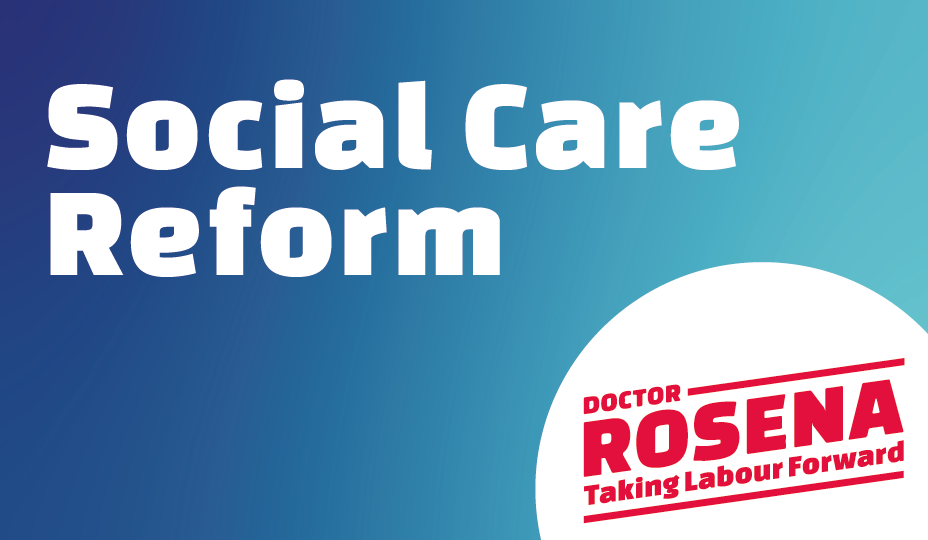
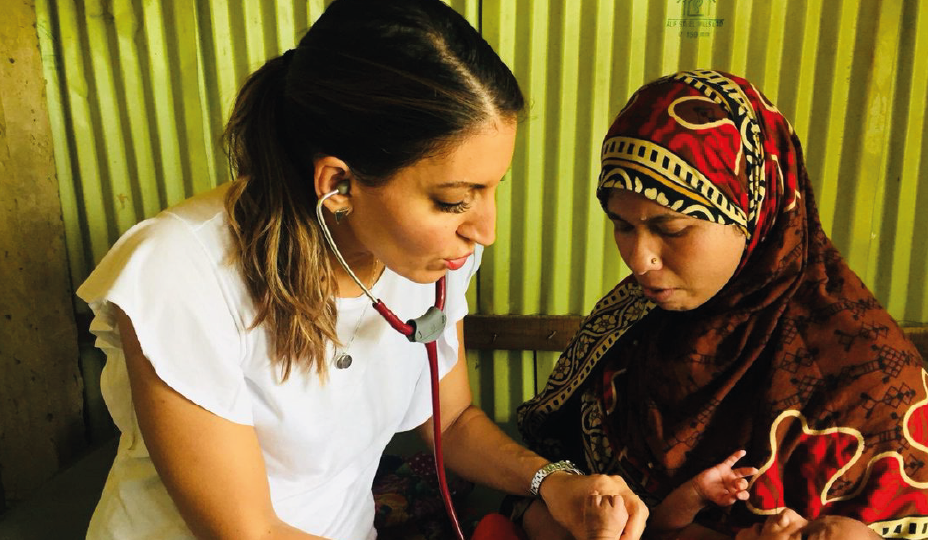
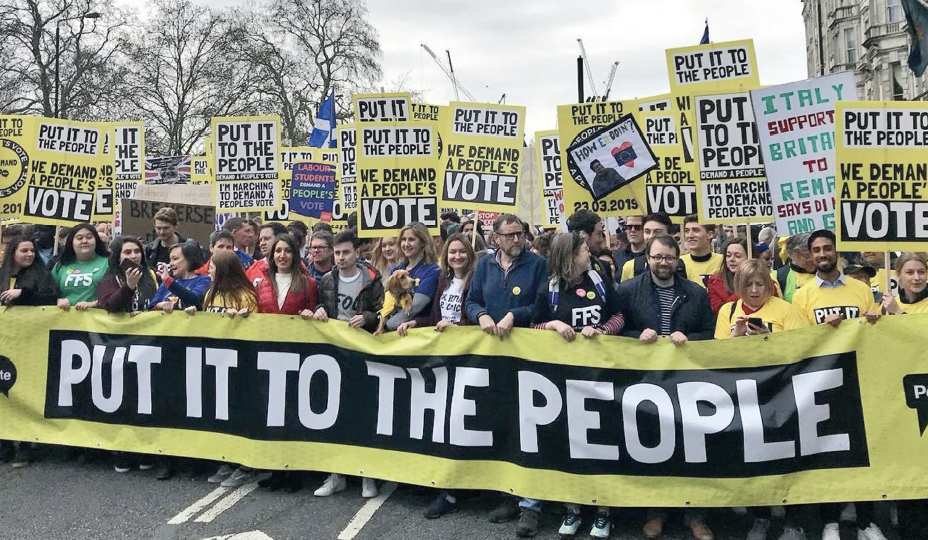

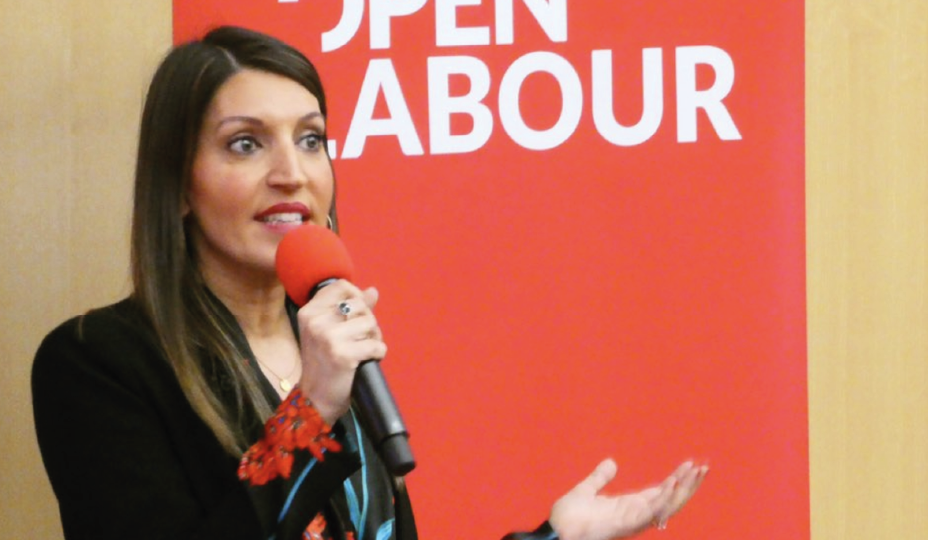
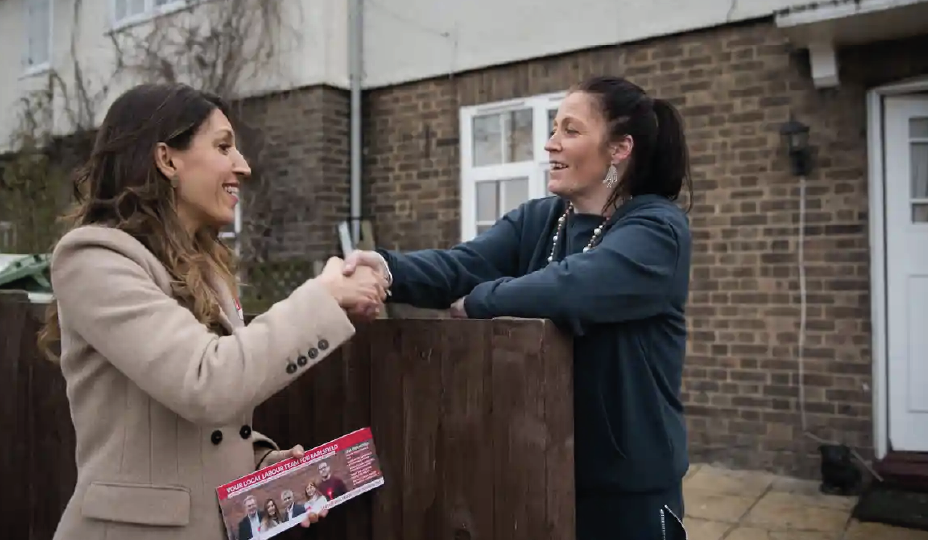
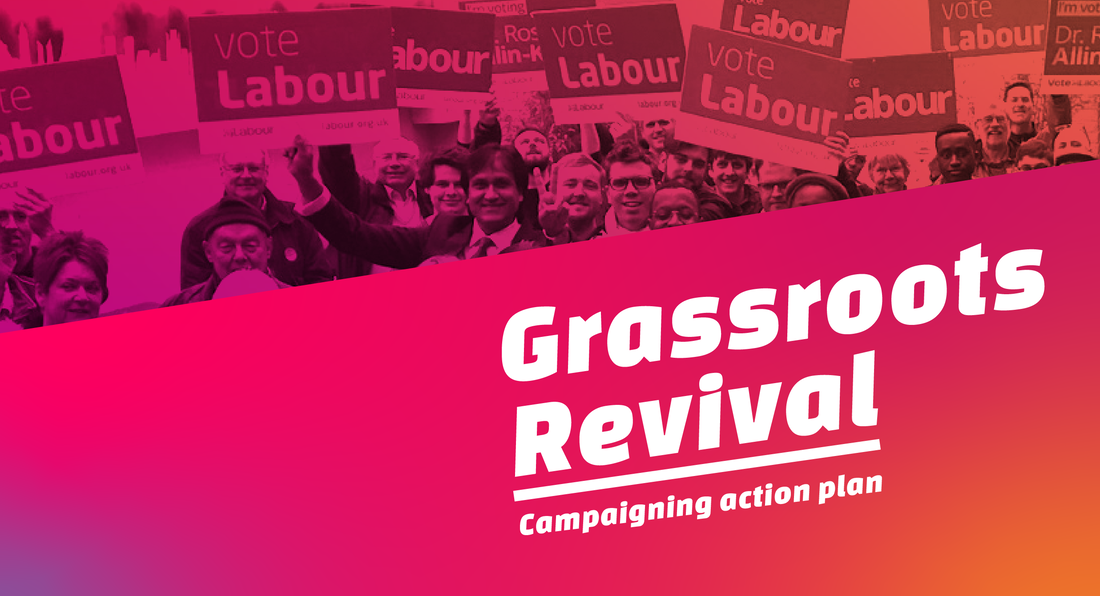
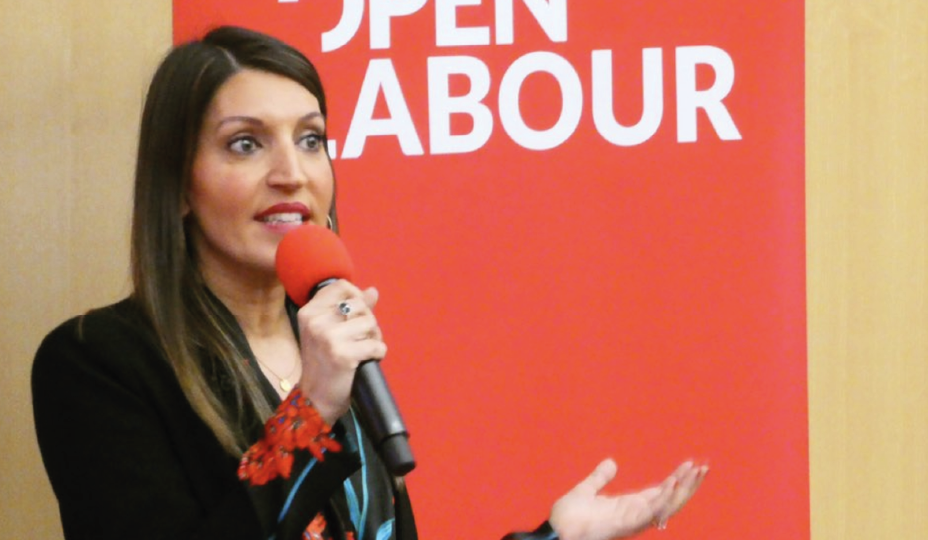
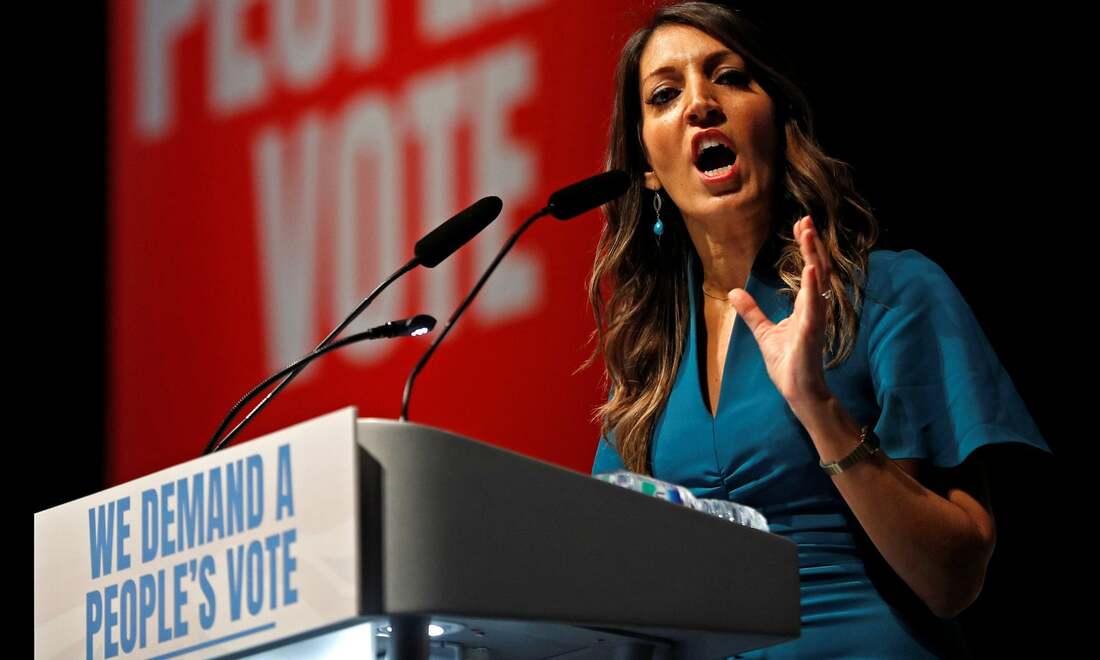
 RSS Feed
RSS Feed